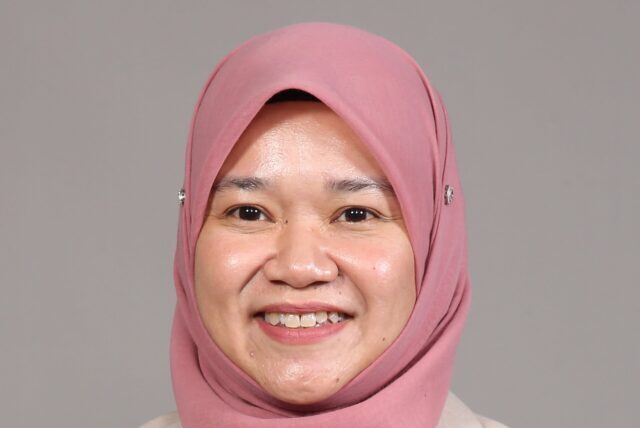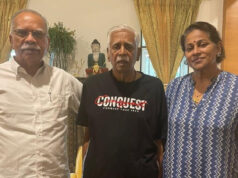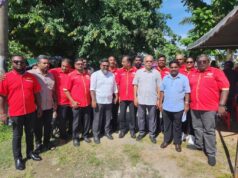PRESS STATEMENT BY PROF DR P.RAMASAMY,
INTERIM CHAIRMAN,
URIMAI POLITICAL PARTY
Education minister Fadhlina Sidek’s aide Thiyagaraj Sankranarayanan has informed the public that the education officer in Penang who banned the two Tamil songs, Kaduval Valuthu (religious song) and Tamil Valuthu (song in praise of Tamil) and the prohibition of the portrait of Tamil Saint Valuvar has been transferred as a punishment.
Few days ago, Fadhlina said in Parliament that action would be taken against the official who denied the songs and the portrait in the national Tamil carnival in Kepala Batas in Penang.
The Indian MPs in the Parliament were overjoyed to hear the response of Fadhlina.
One Indian MP praised Fadhlina to the extent of saying that there was no need for a new Indian political party.
He didn’t mention the name of Urimai, the new political party that was in the process of formation.
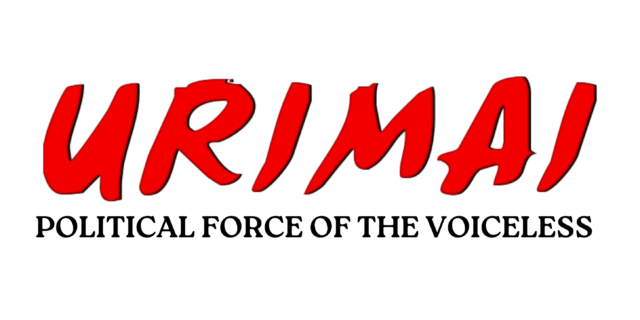

If the ministry was serious about meting out punishment against the officer, the provision of the present information is inadequate. Alternatively, the ministry should publish the name of the officer, was there an inquiry into the wrong doing and what was the punishment meted out.
Was the transfer a lateral one or a demotion?
Fadhlina’s special officer did not reveal these information. I don’t understand why Fadhlina used her special officer Thiagaraj to reveal the scanty information.
Why didn’t she come forward?
What is she afraid of?
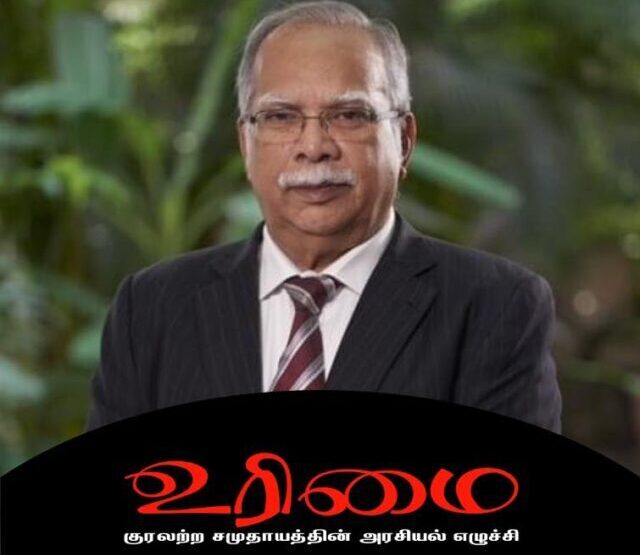

Humiliation of Indians in the country is not something new. It has been going on for a long period. Most of the time, the complaints of the Indian community are not taken seriously on the grounds of their weak political power.
Moreover, the absence of a strong Indian political organisation meant that the concerns of the Indian community could not be taken up seriously and effectively.
Anyway, things might not be same anymore with the emergence of Urimai—the newly established political movement that will take up the problems of the Indian community without fear or favour.
On the banning of the Tamil songs and the removal of the portrait of the Tamil Saint, Urimai wants Fadiina to provide a full and comprehensive explanation of the action taken against the officer.
Urimai wants the name of the officer, was his transfer a punishment or just routine, what was the nature of the punishment and the steps that might be adopted by the ministry to avoid cultural deprivations of Indians and others.
Urimai likes to reiterate once again that transfers should not be used to sweep things under the carpet. There must be a genuine punishment meted out against the officer who was involved.
Until and unless, Fadhlina clears up the matter of punishment, the issue will remain open without any closure.
The Indian community has been insulted and humiliated as result of the incident at the national Tamil language carnival a few weeks ago in Kepala Batas.
If there is no acceptable closure to the incident, then it might merely confirm Indians disgust with the Madani government.



